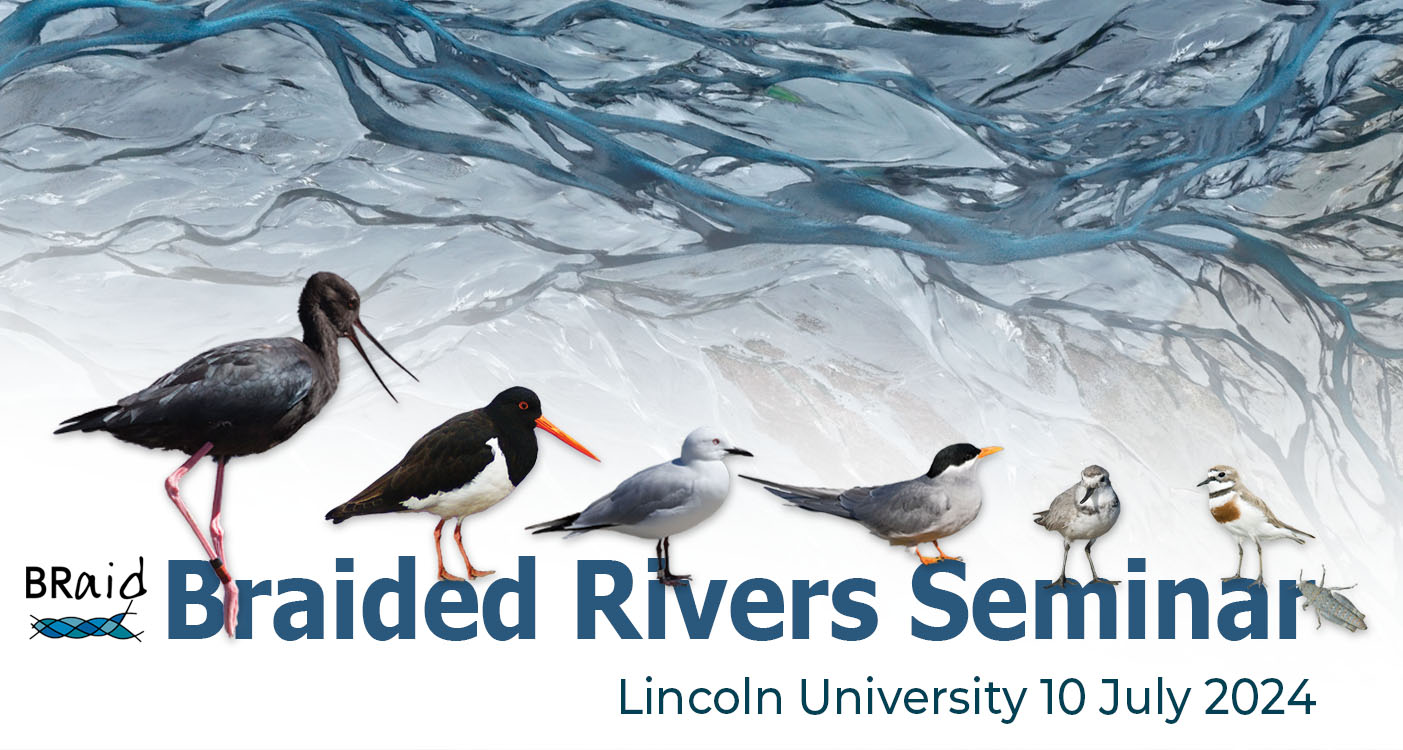
Speakers
Gabrielle Huria (MNZM) Te Ngāi Tūāhuriri is the Chief Executive of Te Kura Taka Pini – the Ngāi Tahu company set up to work strategically with freshwater in the Ngāi Tahu takiwā/ tribal area. Mahinga Kai (mutton birding, whitebaiting, eeling) is integral to Gabrielle’s world view, driving a commitment to improving water quality and quantity. She has an extensive background in governance and tribal development.
In addition to her role as Chief Executive, Gabrielle is the Chair of the University Digital Screen Advisory Board and a member of the Ngāi Tahu Research Centre Advisory Board. Prior to her current role, Gabrielle was Principal Advisor for Christchurch City Council and the inaugural Chair of Emerge Aotearoa. In 2018 she received her MNZM for services to Māori and governance.
Wendy Fox (Lincoln University) is a PhD student whose research is centred around karoro/SBBG in Canterbury, analysing breeding success and their local movements.
Samantha Ray: Operations Manager and Senior Ecologist (Wildlife Management International Ltd: WMIL) As part of her role as Operations Manager, Samantha oversees all of the WMIL projects operating in New Zealand directing personnel in the field and office and managing all aspects of the projects. Sam is a seabird specialist, working on long-term seabird and shorebird research projects including toanui/flesh-footed shearwaters, tākoketai/black petrels and tarapirohe/black-fronted terns. Sam has managed the kāhu banding project to determine the impacts that this species may have on tarapirohe as part of the annual monitoring programmes that WMIL completes for DOC and ECan. Sam has also undertaken a range of predator monitoring and control programmes along braided rivers in northern Canterbury, as well as other locations across New Zealand.
Jaz Morris (Boffa Miskell) is an ecologist based in Christchurch who specialises in terrestrial ecology and botanical survey. Jaz frequently works alongside land managers and Boffa Miskell’s biosecurity consultant team to identify and prioritise pest plant issues. He is passionate about realistic, effective and appropriate control approaches to tackle weeds and to enable ecological restoration and protection of indigenous habitats.
Rachel L Hufton, Project Officer and Co-founding trustee (Aspiring Biodiversity Trust: ABT) is a professional ecologist and ornithologist, originally from UK, New Zealand has been home for the last nine years. Her current focus is the Makarora Catchment Threatened Species Project – From Ridge To River. A partnership project centred on four focal habitats and the threatened species they support; braided river for wrybill, black-fronted tern, banded dotterel, black-billed gull, beech/ podocarp forest for kaka and long-tailed bat, upper river catchments for whio and the alpine environment for rock wren and kea. She has over 22 years experience within the environmental management sector and has worked as an environmental consultant focused on protected species, a local government ecologist safeguarding biodiversity on a county level and as an ornithologist on international conservation projects.
Anthony Coote, Chair (Aspiring Biodiversity Trust: ABT) is a professional geo-scientist and contributes to indigenous biodiversity protection and restoration programmes within the Makarora catchment. Anthony is actively involved in the management of logistics and safety in relation to braided river to alpine species surveying/monitoring and predator control field programmes. Anthony has adapted his earth/strategic-metals- resource science vocation skills to the planning and execution of ABT’s multiple habitat and species protection and monitoring projects. As a geo-scientist he provides specialist technical input into the delineation of metals in the Earth’s crust, many of these metals increasingly strategic and indispensable to expanding sustainable energy generation and consumption.
Emma Williams (Department of Conservation) is a Science Advisor for DOC, she leads the Department’s Mobile Terrestrial Threatened Species Workstream. Emma work on highly mobile threatened species, includes several braided riverbed bird species, such as banded dotterels, black-fronted terns, South Island pied oystercatchers and wrybills. Her projects are often holistic and collaborative in nature because of the landscape scale movements of the species she works on. She has also done 13 + years work on wetland birds, including the Australasian bittern, spotless cakes and marsh crakes.
Helen Greenep (Environment Canterbury) has a range of ecological interests including braided rivers, drylands, and wetlands. Her main focus is vegetation and habitats, and she is particularly interested in the dynamic nature of braided rivers and the habitat mosaic that produces. Human activities have had a severe impact on the ecological functioning of braided rivers and one of Helen’s interests is how to restore some that natural dynamism and mosaic into constrained braided river ecosystems.
Holly Harris (University of Canterbury) is researching on the Cass River in Tekapo for her doctorate. With a bit of experience in freshwater and terrestrial biomonitoring, she is now interested in how braided rivers work as whole ecosystems to support the life that exists within them, such as the birds and fish that we know and love.
Tara Murray (Department of Conservation) is based in Dunedin as a Science Advisor | Kaitohu Pūtaiao in DOC’s Terrestrial Fauna Unit. Her work with terrestrial insects over 20+ years has included biosecurity, biodiversity, ecology and behaviour, climate change, monitoring, and insect conservation. Tara graduated with an honours degree from Otago University, studying native grassland weevils, followed by an MSc in Massachusetts, a PhD with Forest Research in Rotorua, and a postdoc and the Hawkesbury Institute for the Environment in Western Sydney. Tara was a senior lecturer at Canterbury University for 9 years, during which time she started working on the Robust grasshopper, before joining DOC in 2019. She is also president of the New Zealand Entomological Society.
Grant Davey (Ashley Rakahuri Rivercare Group) has been a mineral exploration geologist in six countries and was a hydrogeologist at Environment Canterbury for four years. He has a PGDip in Environmental Science. For about six years he’s been an active member of the Ashley Rakahuri Rivercare Group and BRaid.

